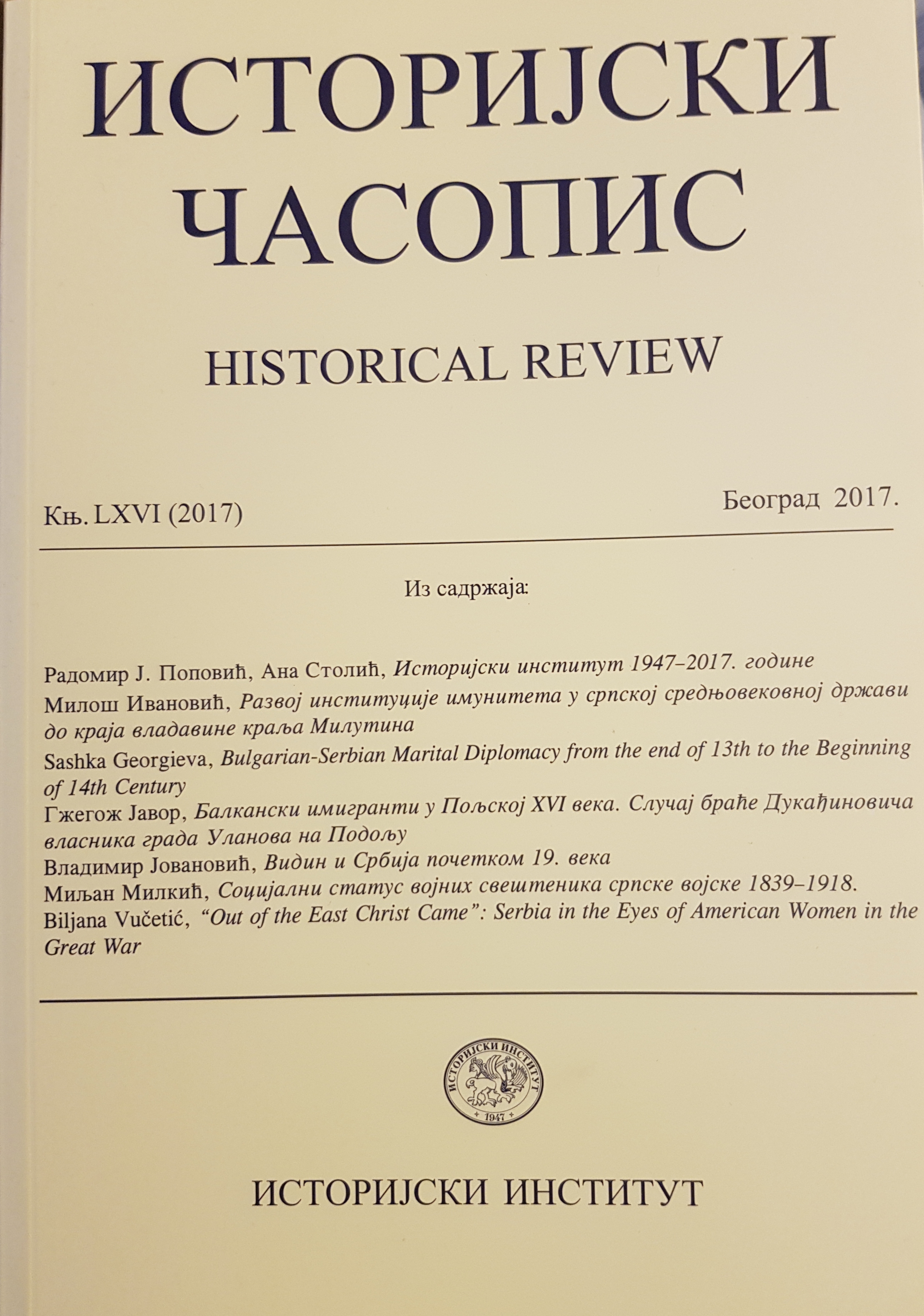Прилог о деловању кнеза и војводе Петра Павловића у босанско-угарско-турским сукобима почетком XV века
A Contribution about the Activity of Knez and Voivode Petar Pavlović in the Bosnian-Hungarian-Turkish Conflicts at the Beginning of the 15th Century
Author(s): Neven IsailovićSubject(s): History, Middle Ages, 15th Century
Published by: Istorijski institut, Beograd
Keywords: Petar Pavlović; Bartholemew (Bartol) Fáncsy of Gordova (Grđevac); knez Pavle Radinović; Battle of Lašva; Bosnia; Hungary; Turks; 15th century; year 1415
Summary/Abstract: On the basis of new sources from the Hungarian State Archives it was determined that knez and, later, voivode Petar Pavlović, son of knez Pavle Radinović, had a significant role in the wars that Bosnia led with Hungary at the beginning of the 15th century, sometimes in cooperation with the Turks. Petar, whose name is explicitly mentioned in the sources, most likely acted as a close associate of Hrvoje Vukčić and participated in conflicts around the Una River, while after the Battle of Lašva (1415) he captured a prominent nobleman from Slavonia – Bartholomew Fáncsy of Gordova (Bartol Fanči Grđevački), the eldest son of Ladislav, the former ban of Croatia and Dalmatia. Bartholomew was ransomed for 8,000 ducats and his family had to cede a part of their estates to the persons who lent them money. It is not known when the payment occurred, but it seems Bartholomew was free by the spring of 1416. The fact that Petar was involved in the Battle of Lašva and that he actively cooperated with the Turks, sheds new light on the incident in Parena poljana i.e. the murder of Petar’s father knez Pavle Radinović organised by the Bosnian king Ostoja and his leading supporter – grand voivode Sandalj Hranić. It becomes clear that the “accord of the Bosnian nobility” in the summer of 1415 was in fact only an episode, if not an illusion, and that the Pavlovićs were justifiably considered collaborators of Hrvoje Vukčić and the Ottomans, and it is quite likely that knez Pavle, as the leader of his family, received capital punishment for his son’s sins. However, the reasons why Petar’s life was spared and the circumstances of his liberation after temporary detention in the Bobovac castle remain unexplained.
Journal: Историјски часопис
- Issue Year: 2017
- Issue No: 66
- Page Range: 173-208
- Page Count: 36
- Language: Serbian

